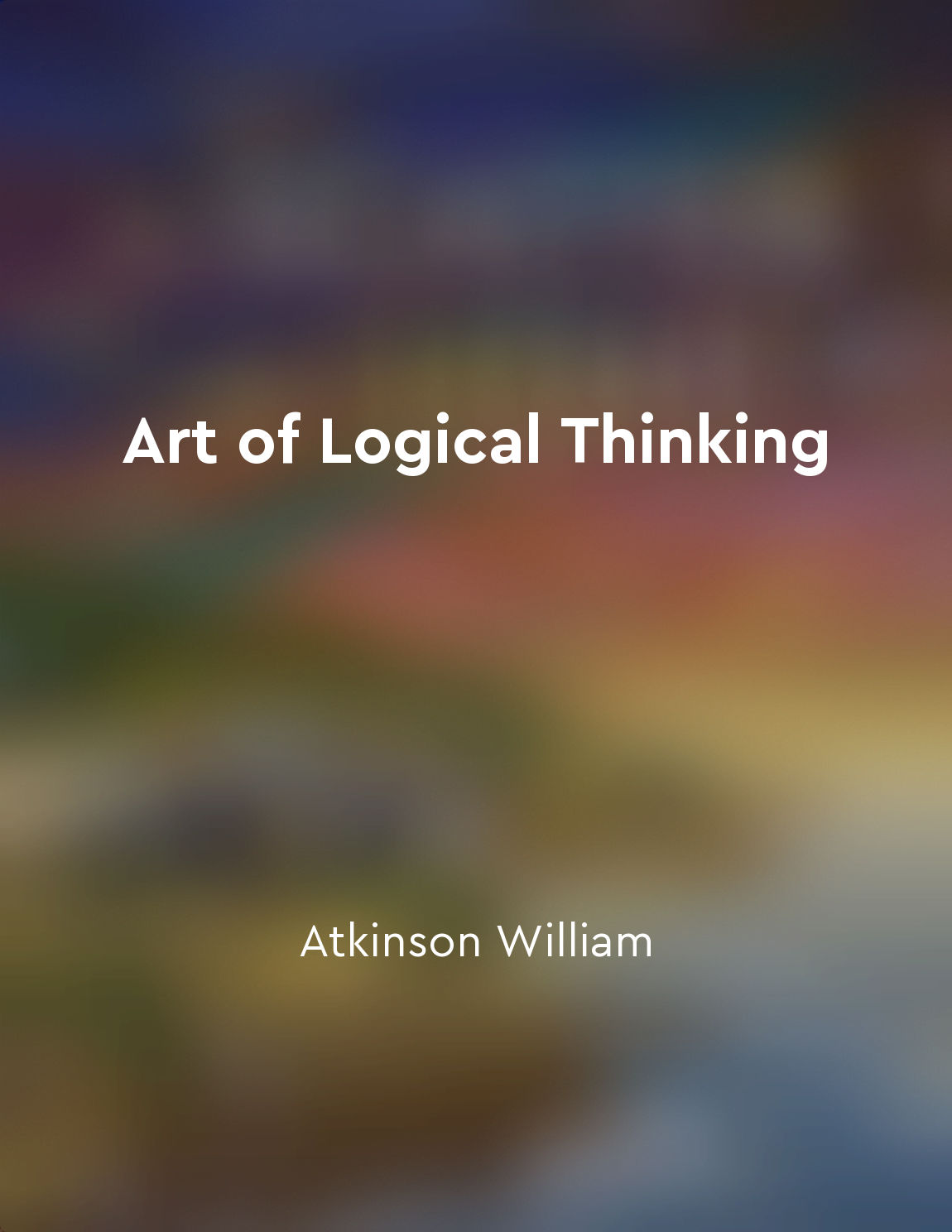Audio available in app
Abductive reasoning infers the best explanation from "summary" of Art of Logical Thinking by Atkinson William
Abductive reasoning is a form of logical inference that seeks to uncover the most plausible explanation for a given set of observations. It involves moving from particular facts to a likely explanation for those facts. In other words, it starts with the evidence and works backwards to determine the most reasonable conclusion. This type of reasoning is often used in scientific inquiry, detective work, and everyday problem-solving. When using abductive reasoning, one must consider all possible explanations for the observed facts and then evaluate each explanation based on its consistency with the evidence. The goal is to arrive at the best possible explanation given the information available. This process requires creativity and critical thinking skills to generate and evaluate hypotheses. Unlike deductive reasoning, which aims to prove a conclusion with certainty, abductive reasoning aims to uncover the most likely explanation, even if it is not definitively proven. It is about making educated guesses based on the available evidence and using reasoning to determine which explanation is most plausible.- One can arrive at a more informed and logical conclusion. It allows us to make sense of the world around us and make decisions based on our best understanding of the available information.


